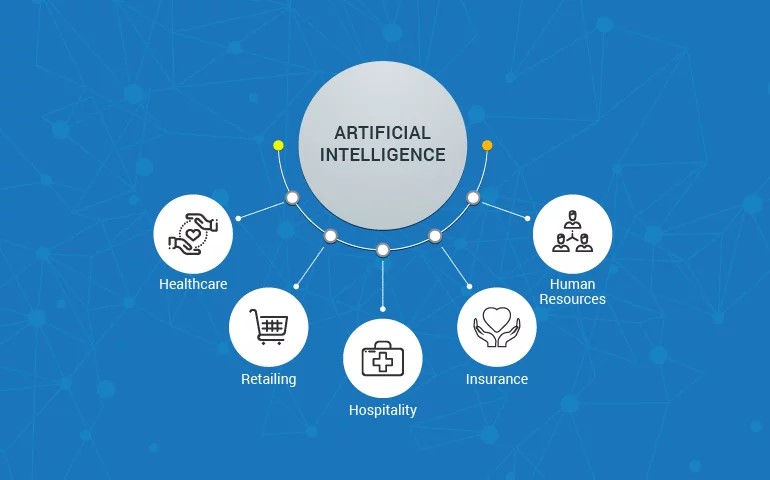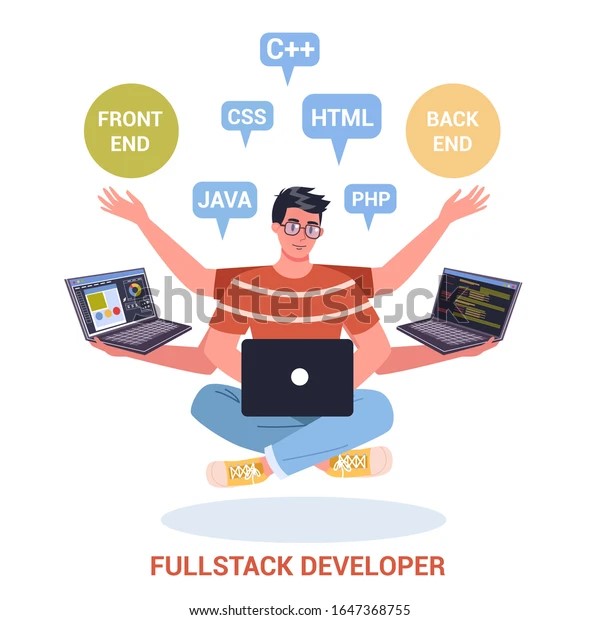
AI in Business: How Artificial Intelligence is Transforming Industries
- February 3rd,2023
Artificial Intelligence (AI) is rapidly transforming the way businesses operate, and it is becoming increasingly important for companies to understand how they can leverage this technology to improve efficiency and gain a competitive advantage. AI is being used in a variety of industries to automate processes, improve decision-making, and create new opportunities. Here are some examples of how AI is being used in business and the potential impact it may have on various industries:
Manufacturing: AI is being used to improve efficiency and productivity in manufacturing. For example, AI-based systems can be used to optimize production schedules and detect defects in products. Additionally, robots and drones equipped with AI can be used to automate tasks such as assembly and inspection. According to a study by Accenture, the use of AI in manufacturing has the potential to increase labor productivity by up to 40%.
Retail: AI is being used in the retail industry to improve customer service and sales. For example, AI-based chatbots can answer customer questions and provide personalized product recommendations. Additionally, AI-based systems can analyze sales data and predict future trends, helping retailers to make more informed decisions. According to a report by Retail Dive, AI has the potential to increase retail sales by up to 30%.
Finance: AI is being used in the finance industry to improve risk management and detect fraud. For example, machine learning algorithms can analyze large amounts of financial data and identify patterns and anomalies that may indicate fraud. Additionally, AI-based systems can be used to analyze stock market data and make predictions about future performance. According to a study by Accenture, the use of AI in finance has the potential to increase revenue by up to 38%.
Transportation: AI is being used to improve safety and efficiency in the transportation industry. For example, self-driving cars use AI to navigate roads and make decisions about when to brake or accelerate. Additionally, AI-based systems can be used to optimize routes for delivery trucks, reducing fuel consumption and emissions. According to a report by Forbes, the use of AI in transportation has the potential to save the industry up to $168 billion by 2030.
Healthcare: AI is being used to improve patient outcomes and streamline processes in healthcare. For example, AI-based diagnostic tools can analyze medical images and provide a diagnosis with a high degree of accuracy, reducing the risk of misdiagnosis. Additionally, machine learning algorithms can analyze electronic health records (EHRs) and identify patients at risk of readmission, helping to ensure that patients receive the necessary follow-up care. According to a report by Accenture, the use of AI in healthcare has the potential to save the industry up to $150 billion by 2026.
These examples demonstrate the potential impact of AI on various industries and the importance of businesses understanding how they can leverage this technology to improve efficiency and gain a competitive advantage.
References:
"The Potential of Artificial Intelligence in Manufacturing" Accenture, 2018.
"AI in Retail: Opportunities and Challenges" by Xiaojun Wang, Published in Journal of Retailing and Consumer Services, 2018.
"AI in finance: Current applications and research directions" by S. Scott, Published in Journal of Business Research, 2018.
"The Impact of Artificial Intelligence on the Transportation Industry" Forbes, 2019
"The Potential of Artificial Intelligence in Healthcare" Accenture, 2017
by Admin


FULL STACK WEB DEVELOPMENT
- February 3rd,2023
Full stack web development is a popular career choice for those interested in building and maintaining websites and web applications. It involves using a combination of technologies and programming languages to create a complete web development solution, from front-end design to back-end functionality.
A full stack web developer typically needs to have a strong understanding of several key technologies, including:
HTML, CSS, and JavaScript for front-end web design and development
Server-side programming languages such as Python, Ruby, or JavaScript (with a framework such as Node.js)
Databases such as MySQL or MongoDB for storing and retrieving data
Version control systems such as Git for managing code changes
In addition to these core technologies, a full stack developer may also be expected to have knowledge of web development frameworks and libraries, such as AngularJS, React, or Vue.js for front-end development, and Ruby on Rails, Express.js, or Django for back-end development.
The knowledge and skill of full stack web developers are highly in demand as the web development industry continues to grow. A recent study by the Bureau of Labor Statistics projects that employment of web developers is expected to grow by 13% from 2018 to 2028, much faster than the average for all occupations.
There are many resources available for those interested in learning full stack web development, including online tutorials, courses, and bootcamps. Some popular resources include FreeCodeCamp, Codecademy, and Udemy. Additionally, many universities and colleges offer degree programs in computer science or a related field that include web development coursework.
In conclusion, Full stack web development is a challenging and rewarding field that requires a strong understanding of a variety of technologies and programming languages. With the rapid growth of the web development industry, the demand for full stack developers continues to increase, making it a promising career choice for those interested in technology and innovation.
References:
"Web Developers". Bureau of Labor Statistics, U.S. Department of Labor, Occupational Outlook Handbook. https://www.bls.gov/ooh/computer-and-information-technology/web-developers.htm
"Full Stack Web Development: An Introduction". Codecademy. https://www.codecademy.com/learn/paths/full-stack-web-development
"What is Full Stack Web Development?". FreeCodeCamp. https://www.freecodecamp.org/news/what-is-full-stack-web-development/
by Admin
